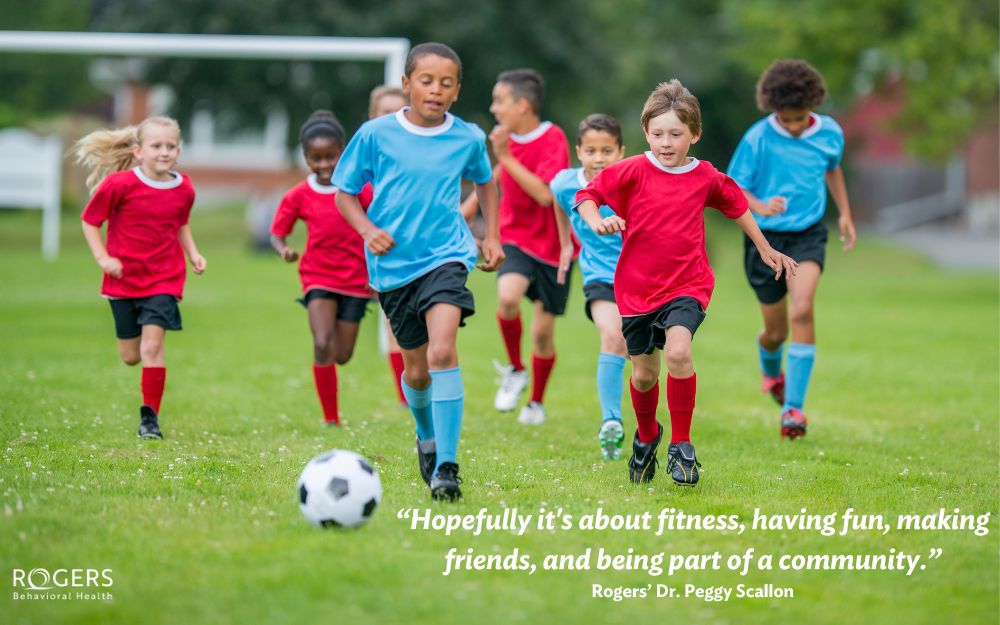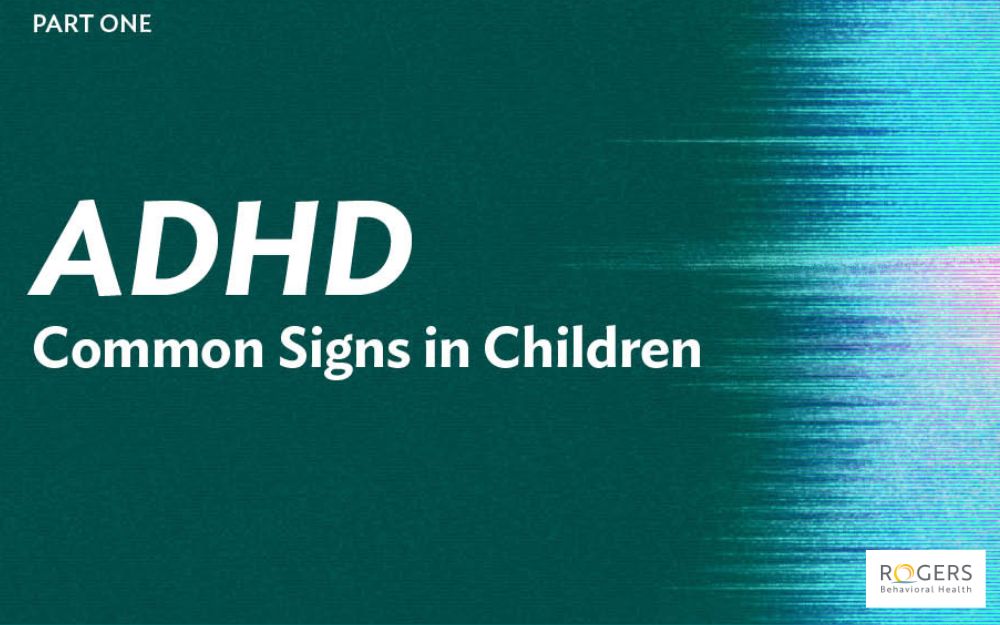Benefits of sports for mental health in kids
Posted on 10/03/24 03:33:pm
Share this article:
By Peggy Scallon, MD, DFAPA, DFAACAP, medical director, Focus Depression Recovery Adolescent Residential Care, senior medical director, Oconomowoc Campus, psychiatrist at Rogers Behavioral Health
After-school practices. Weekend tournaments. Travel teams.
With an estimated 27 million kids from ages 6 to 17 playing sports, families are shuffling their schedules to accommodate all the activity. Rogers’ Dr. Peggy Scallon explores the benefits and important things to consider when it comes to kids and sports.
How do sports help kids with their mental health?
One benefit kids experience while playing sports is physical fitness and conditioning. We know that physical activity is very important to a person’s overall well-being. Being active as a kid and getting exercise through something fun is one way to ensure a person stays active throughout their lifetime. Additionally, kids learn how to regulate their emotions by tolerating frustration and disappointment, as well as experience happiness by participating in a celebration when something good happens.
Both individual and team sports can be positive. Individual sports are really helpful because kids can do them at any time and they don't need other people in order to engage in them. Examples may include running, cross-country skiing, or water sports.
Being part of a team helps kids learn to work together to achieve a goal. It gives them a sense of community, which is important, where kids learn how to interact with people outside of their families. As kids grow older, they learn how to take their place in the world of their peers. We all need to feel connected to other people, especially in these days after the pandemic. Kids can get used to staying behind their screens and engaging with each other in that way. Face-to-face interaction can be somewhat anxiety provoking for them, so it can be beneficial to have a fun activity on the calendar where kids can learn to follow rules and be challenged physically, mentally, and socially.
What should parents and caregivers be mindful of when their child is playing sports?
I have seven recommendations for parents and caregivers:
- Maintain control of your emotions. Remember that you’re modeling how to behave in a competitive setting, so keep it positive and fun.
- Reinforce that win or lose, it was a worthy endeavor. Kids need to learn how to do both.
- Stay respectful of other people.
- Be aware of how the sport impacts the family, including other siblings.
- Check in with your spouse or partner from time to time and ask, “Does this still make sense for the child and/or our family?”
- Have unstructured family time. Parents need to balance keeping kids busy and letting them be kids and not overscheduling them. Kids need downtime, too.
- Consider your ultimate goals for your child participating in the sport. Kids don’t need to specialize in a sport at a young age. That can be a lot of pressure and not every child ends up on a D1 team. Hopefully participating in a sport is about fitness, having fun, making friends, and being part of a community. It’s important to be realistic about what the sport is going to mean in the life of the child. Of course, recognize if your child really is a super talent. That's wonderful, but again, it's not very common.
Negative effects of youth sports on mental health
There can be potential negative effects for kids in sports. For example, if it impacts their self-esteem, the social dynamics appear to make the child doubt themselves, or if they're consistently not enjoying it. It's always good as a parent to be both encouraging your kids to stay involved and stick it out, and stay aware that they don’t have to do all the sports, or any sport for that matter.
Sometimes sports can become too all-consuming and that can overshadow other parts of family life. Parents should stay aware of other important priorities, such as a special family event of a wedding or a grandparent’s birthday party. Coaches and organizations should also have some awareness that children's sports should be balanced with family life, and priorities need to be evaluated on a case-by-case basis.
What if a child isn’t interested in sports?
It's important for families to do things that are unscheduled and unstructured. That can look like spending time outside in nature where activities don’t have a win or a loss attached to them, but are just the experience for its own unique enjoyment.
Kids can enjoy some of the same benefits as participating in sports through community activities, like being involved in music, theater, church, and volunteer or service organizations. Sometimes when we're so focused on children's sports those things can slip off the radar screen.
All kids are different. Be mindful of your child's interests and follow their lead to some degree. It’s a balance of encouraging them to do something they may not know about, or they might not initially be interested in, but also letting them be an individual and make decisions along the way.
Rogers offers compassionate care for children and teens
If your child is struggling with their mental health, our compassionate team is here to help. Call 800-767-4411 for a free, confidential screening.



